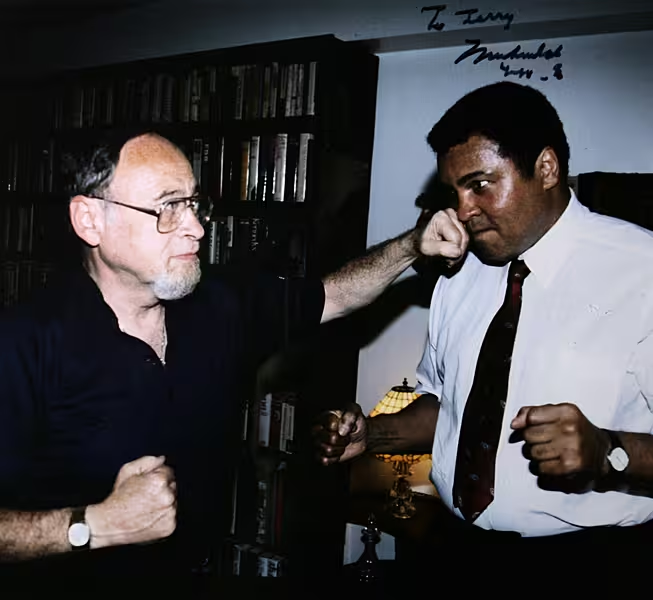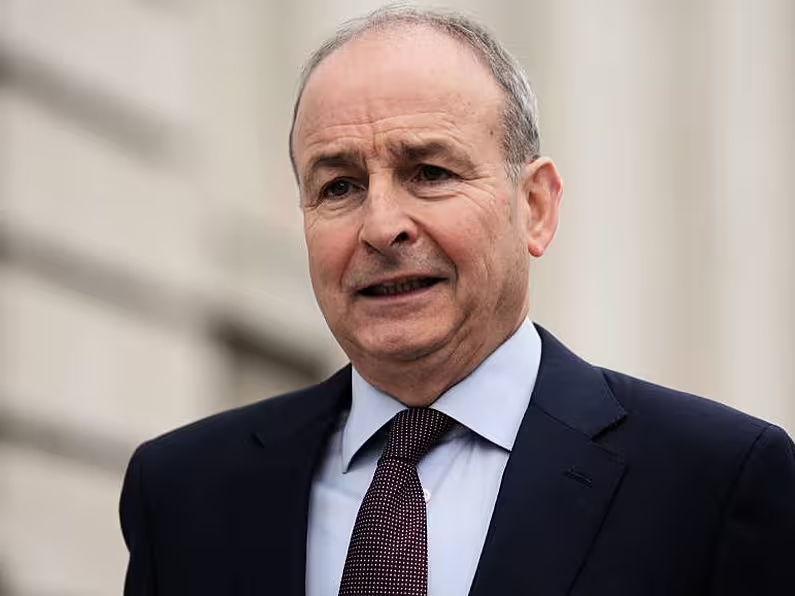Fifty years ago as America seethed, Muhammad Ali and Joe Frazier prepared to engage in their own private war which came to encapsulate the raw emotions of an increasingly divided nation.
It would come to be known as the ‘Fight of the Century’, and if it lacked the rhyming epithet of some of the epic heavyweight contests to follow, it was clear that for the pair’s first meeting there was plenty more than poetry at stake.
At Madison Square Garden on March 8, 1971, a nation still thickly embroiled in the horrors of the Vietnam War got to choose between a man who had so publicly and proudly dodged the draft, and an opponent he so cruelly derided as an ‘Uncle Tom’.

It was the first world heavyweight title fight between two unbeaten fighters, and its associated rancour reverberated throughout a nation already at boiling point, and in which it was crucially important to pick the right side.
The consequences of making your pick public could be painful. Jerry Izenberg, a boxing columnist for the Newark Star-Ledger, wrote a column in which he defended Ali’s right to seek to regain his title after three years of being denied his licence as a consequence of his refusal to enlist.
“I was one of the first to defend Ali,” Izenberg recalled to the PA news agency. “I wrote a column about it and they knocked my car windows out with sledgehammers and sent me faeces through the post.
Construction guys and hippies were fighting in front of New York City Hall with pipes and baseball bats
“Leading up to the fight, feelings were so intense. Construction guys and hippies were fighting in front of New York City Hall with pipes and baseball bats.
“It was the most divisive fight since Max Schmeling fought Joe Louis. Vietnam was happening and Joe and Muhammad became symbols of that struggle. But they weren’t fighting over Vietnam, they were fighting for a title.”
Izenberg, now 90, covered almost all of Ali’s and Frazier’s major fights, and became close friends with both men. He chronicled the fight and others in his book ‘Once There Were Giants: The Golden Age of Heavyweight Boxing’, which has been re-released to mark the anniversary.

For Izenberg, who also covered 53 consecutive Super Bowls until 2020, neither man went into their first meeting with any notion of the intense trilogy that was to follow, culminating in the extraordinary ‘Thrilla in Manila’ three years later.
“I think for both of them, it was one fight and then goodbye,” said Izenberg. “Ali was convinced Joe was slow, but Joe was relentless and had a left hook that I thought had a mind of its own.”
Frazier went into the fight as the hard-hitting champion, while Ali had warmed up with wins over Jerry Quarry and Oscar Bonavena, having fought just as hard through the courts for the right to resume his boxing career after a three-and-a-half-year absence.

Ali started in the ascendency but was gradually worn down by that drubbing left hook of Frazier’s. It conjured the bout’s decisive moment, a final round knockdown, which effectively put the scorecards beyond the reach of Ali.
If it was a typically brutal contest, arguably it was what happened in the immediate aftermath that stoked the existing enmity between the pair, cementing a feud which would remain unresolved at the time of Frazier’s death in 2011.
“Joe goes to the hospital, and Ali goes on the late-night talk shows, and now he’s got everyone convinced,” says Izenberg: “‘They’ll never let the black man win’ – because he never saw Frazier as the black man.
“I went to see Joe at his gym in north Philadelphia. I walk in and look at the wall and there is a floor to ceiling blow-up of Ali on his arse and Joe walking towards a neutral corner. I said, you didn’t waste any time, did you.”
Frazier would defend his title twice more before it was brutally wrenched away from him by George Foreman in Kingston, Jamaica in 1973.
Ali won a return match between the pair in January 1974, setting up his famous win over Foreman in the ‘Rumble in the Jungle’. The following year, the Ali-Frazier trilogy was completed in the Philippines.
For Izenberg, Frazier’s inability to forgive and forget was encapsulated in a conversation the pair had on the same day he visited Frazier’s gym with the fall-out from the fight still warm.
Heading out to a local deli to pick up lunchtime sandwiches, Frazier’s Rolls Royce was chased by three eight-year old boys who recognised the fighter.
“Joe gets out to autograph pictures and pat them on the head, tell them staying in school doesn’t hurt anybody and to pay attention to your parents,” recalls Izenberg.
“All of a sudden one of the kids says, ‘My daddy says that Muhammad Ali was drugged.’
“Joe couldn’t believe what the kid said. He got down eye-to-eye and says, ‘you run home and tell your daddy he was right, that Muhammad Ali was drugged – I drugged him with three left hooks.’
“Then he said the most prophetic thing to me about his own future – he said, ‘you scored the fight, you know I won the fight, so you tell me what I’ve got to do to escape from this man’s shadow.’ He never did.”











